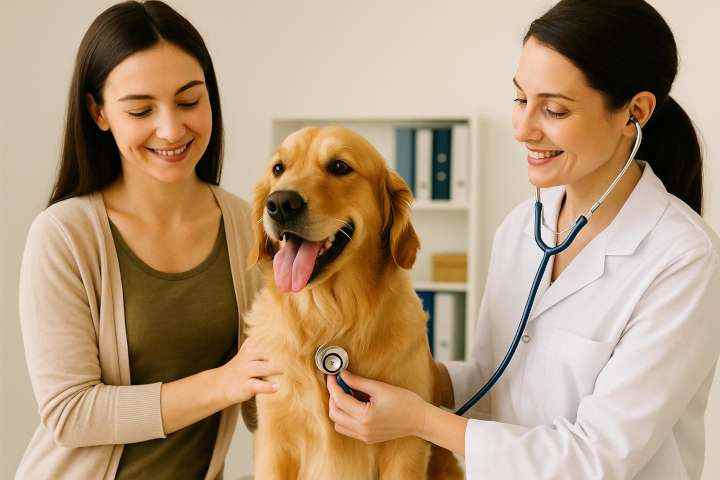Your dog’s first vet visit is a critical step in ensuring their long-term health and happiness. Whether you’ve just adopted a puppy or brought home a rescue dog, a thorough veterinary checkup will give you peace of mind and help set the foundation for preventive care.
In this guide, we’ll walk you through exactly what to expect during your dog’s first veterinary appointment—plus the most important questions to ask your vet to make the most of the visit.
When to Schedule the First Visit
You should schedule your dog’s first vet appointment within the first 3–7 days of bringing them home—even if they appear healthy. For puppies, the visit may need to happen within 48 hours to continue a vaccination schedule. For adopted adult dogs, it’s important to establish a baseline and verify any medical history provided.
What to Bring
Prepare the following before the appointment:
- Adoption or breeder paperwork (including any medical or vaccine records)
- A list of questions or concerns you’ve noticed
- A stool sample (within 24 hours) for parasite screening
- Your dog on a leash or in a carrier
- Any food or treats you currently use
Tip: Write down any unusual behavior, eating habits, or previous illnesses you’ve observed—your vet will appreciate the details.
What to Expect During the Visit
1. Physical Examination
The vet will check your dog’s:
- Weight and body condition
- Eyes, ears, teeth, and gums
- Skin and coat
- Heart and lungs
- Joints and muscles
- Temperature and pulse
2. Vaccination Review
If your dog is a puppy or hasn’t been vaccinated recently, the vet will recommend a schedule for core and optional vaccines.
3. Parasite Screening and Prevention
Expect tests or treatments for:
- Intestinal parasites (via stool sample)
- Fleas and ticks
- Heartworm (if age-appropriate)
4. Behavior and Socialization Advice
The vet may ask about your dog’s behavior, environment, and social exposure to provide personalized advice on training or adjustment.
5. Microchipping Discussion
If your dog hasn’t been microchipped yet, your vet may recommend it for safety and identification purposes.
6. Nutrition and Feeding Guidance
Based on age, breed, and body condition, your vet will offer advice on diet, portion sizes, and supplements if needed.
Questions to Ask Your Vet
Make the most of your visit by asking these key questions:
- What vaccinations does my dog need and when?
- Is my dog at a healthy weight?
- What type of food should I be feeding?
- How often should I deworm or apply flea/tick preventatives?
- When should we schedule spaying or neutering?
- How can I help with teething, chewing, or crate training?
- Are there signs of stress or anxiety I should watch for?
- How do I set up a schedule for future wellness checkups?
If your dog has medical history or health concerns, ask for clarification on long-term care, treatment options, or required follow-up.
After the Visit
- Schedule follow-up appointments for vaccines or checkups
- Update records with any new microchip or treatment information
- Start any prescribed medications or parasite preventatives
- Continue observing your dog for behavior or health changes
Don’t forget to reward your dog with praise or a treat—visits to the vet should always end on a positive note.
Conclusion
Your dog’s first vet visit is the beginning of a lifetime of care. With the right preparation and the right questions, you’ll walk away informed, confident, and ready to give your dog the healthiest life possible.
Need help tracking vaccines and wellness appointments? Download our free Puppy Health Tracker and stay organized from day one.

